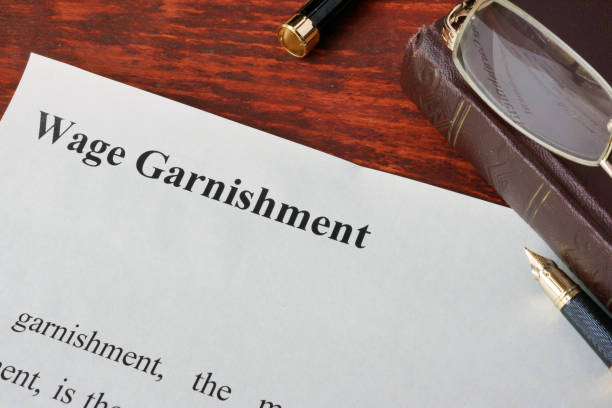Dealing with wage garnishment for judgment collection in NYC can feel overwhelming. If you’ve faced this challenge, you know how uncertain things can get. Let’s clear up the confusion. Wage garnishment is when a court orders your employer to hold back part of your paycheck to pay a debt. This action can be stressful, especially in the bustling environment of New York City. Knowing your rights and the process can make a difference. Warner and Scheuerman have helped many navigate this legal maze. You might feel anxious, but understanding your situation and the steps you can take will guide you through the storm. You will learn what triggers garnishment, how to respond, and the legal protections in place. Take control and find clarity. With the right information, you can manage this situation effectively. Trust our straightforward guidance to help you understand and act with confidence.
What Causes Wage Garnishment?
Wage garnishment mostly happens when you owe money and a court agrees with the creditor. Common reasons include unpaid credit card bills, medical bills, taxes, child support, or student loans. In these cases, the creditor wins a judgment against you, allowing them to collect the debt through garnishment.
The Process of Wage Garnishment
The wage garnishment process starts when a creditor files a lawsuit. If the court rules against you, they can issue a garnishment order. Your employer then receives this order and must withhold part of your earnings. Notably, there are federal and state limits on how much can be garnished. Understanding these limits can help you plan better. According to the U.S. Department of Labor, generally, the lesser of 25% of your disposable earnings or the amount by which your weekly income exceeds 30 times the federal minimum wage can be garnished.
Comparison of Garnishment Limits
| Type of Debt | Maximum Garnishment Percent |
| Consumer Debts | Up to 25% |
| Child Support | Up to 60% |
| Student Loans | Up to 15% |
| Taxes | Varies based on allowance |
Your Rights and Protections
New York law offers protections on wage garnishment. You can’t be fired because of one garnishment. Although federal law provides general guidelines, state law can offer more protection. For instance, New York limits garnishment amounts to 10% of gross income or 25% of disposable income, whichever is less.
Steps to Respond to Wage Garnishment
If you face wage garnishment, don’t panic. Here are steps you can take:
- Review the Court Notice: Understand the details.
- Verify the Debt: Confirm the debt is yours and correct.
- Negotiate with the Creditor: Try to settle outside court.
- Consider Legal Help: A lawyer can offer valuable advice.
- File for Exemptions: If applicable, seek exemption under state law.
Conclusion
Facing wage garnishment in NYC is daunting but manageable with the right approach. Know the process, recognize your rights, and take proactive steps. By staying informed and seeking help when necessary, you can navigate the situation with confidence. Whether you’re dealing with consumer debt, child support, or other obligations, understanding the rules and limits can lighten the load. Remember, you are not alone. Various resources and professionals can offer guidance. Approach wage garnishment with knowledge and poise to regain control over your financial life.


